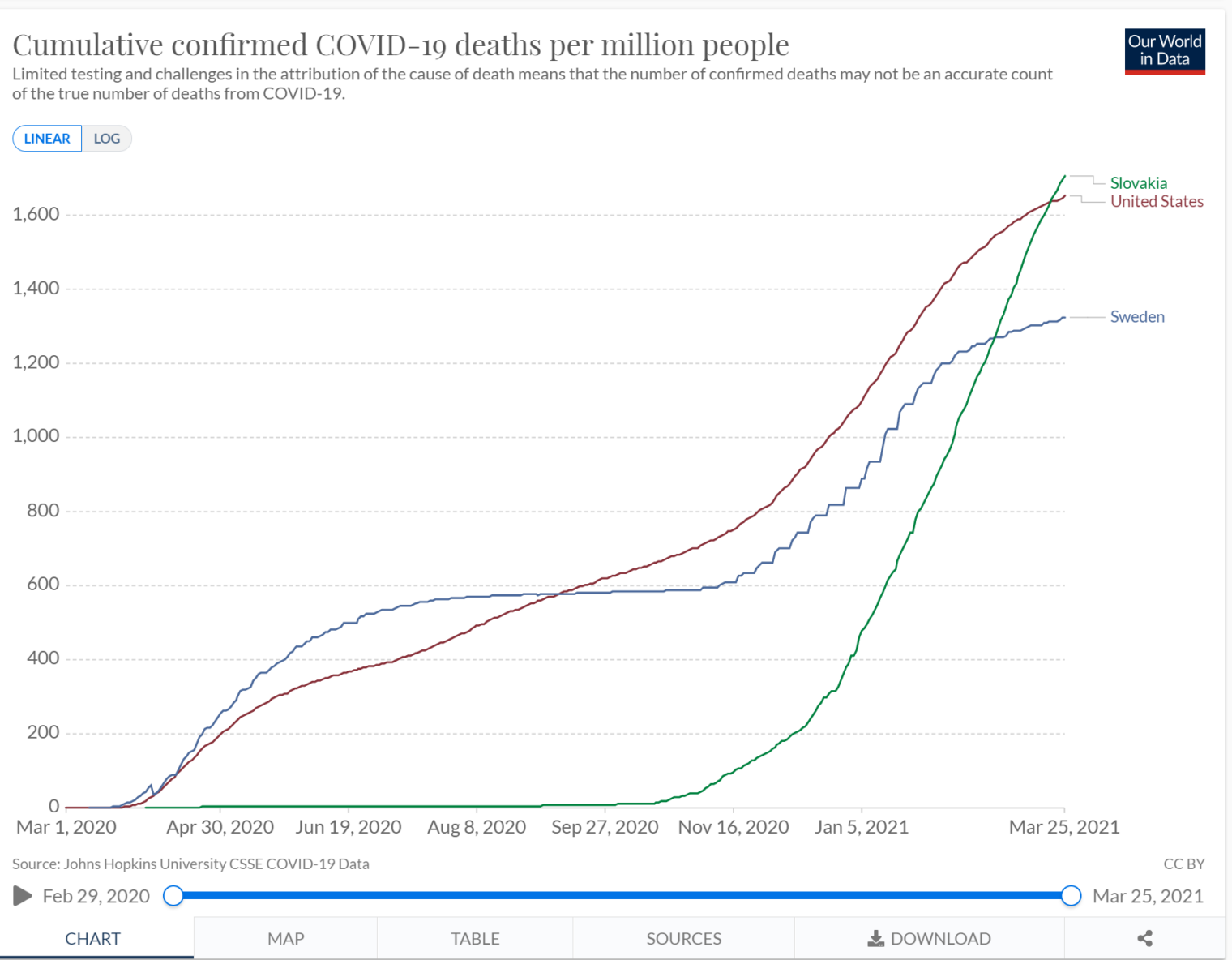In March, when the severity of the coronavirus pandemic was becoming clear but many of the world’s leading nations had yet to formulate a response to it, one country was springing into action. Within 10 days of identifying its first case, it went into lockdown: Its borders were sealed, schools and restaurants were closed, and face masks were made mandatory in public places, with some of the country’s most visible public figures, including its president and prime minister, sporting them to set an example.
The country in question? Slovakia, the nation with the lowest per-capita death rate in all of Europe, and the one that on Friday recorded its first day of no new cases since March.
When this pandemic ends, and when the reckoning over how the world responded invariably begins, Slovakia will likely be among those highlighted as a success story, whereas the United States—which was supposed to be the country best prepared for such a crisis—will be remembered as among those that suffered the worst. How Slovakia was able to flatten its curve comes down to more than just quick decision making and the widespread adoption of face masks. Perhaps the greatest lesson to be learned from Slovakia is of the value of leading from the front.
Let’s check the scoreboard in the COVID Olympics:
Slovakia has suffered a slightly higher death rate than the U.S. Czech Republic is #1 and they’re mentioned in the same Atlantic article:
That signal from the top in Slovakia helped set the tone for the second factor: the widespread adoption of face masks. Despite often-conflicting advice about the efficacy of masks, Slovakia was among the first countries worldwide (and the second in Europe, after the Czech Republic) to make them mandatory in public spaces. This decision put it at odds with the World Health Organization, which has so far held off on advising people to wear masks in public.
The picture in Slovakia has now changed—but its leaders are still proceeding with caution and leading by example. “Hopefully things will go back to normal,” Čaputová told two park-goers last week, both of whom were wearing face masks. But if they don’t, and if a second wave appears, she added: “We will be better prepared. We will be able to mitigate the impact.”
(see also WHO guidance on pandemics then and now)
Who was to blame for the U.S. being on track (according to #Science) to have a much higher death rate than the science-following Slovakians?
President Donald Trump and Vice President Mike Pence have both refused to wear face masks…
Speaking of Trump, who #DeniedScience by ordering vaccines that the experts said wouldn’t be ready for 2-3 years (although maybe the experts were right, since the vaccines are not actually “approved”? see We love our children so much we will give them an investigational vaccine)… Slovakia is at 15 vaccine shots per 100 people right now (the European average) while the U.S. is at 40.
- the Swedish MD/PhD who said, in April 2020, that the hyperactive (or “hyperinactive” depending on how you look at it) countries like Slovakia wouldn’t end up with a dramatically different death rate than no-mask, no-lockdown Sweden’s. Chart below.


That masks and lockdowns won’t do anything was quite obvious to anyone with a functioning brain by the summer if 2020. However, it looks like anacephaly and testicular atrophy are prerequsites for a successul career in modern academia.
Phil, don’t you think it is about time that we refer to them as “health pundits” rather than “health experts.”? I mean their track record is about as good as your average TV pundit opining on what the stock market will do tomorrow, what is going to happen in North Korea over the nest year, what printing lots of dollars is going to do to inflation, etc. Do you think the health pundits have a better track record than, I don’t know, astrologers? I mean at some point in human history astrology was considered a science as was Nazi eugenics, the Communist restructuring of their society in a “rational way” beginning with the family and so on.
I can’t wait to return to your beautiful country.